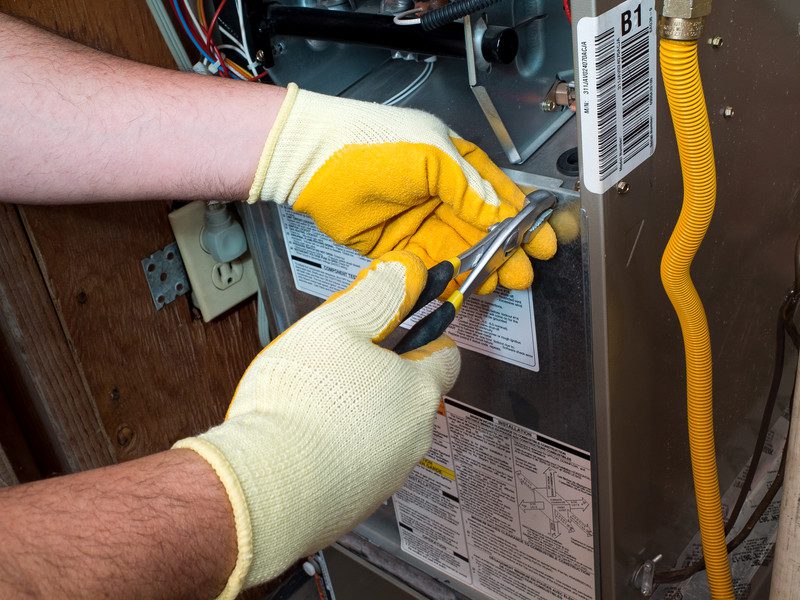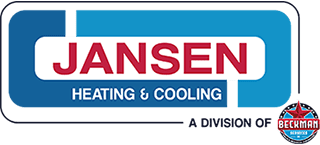Your HVAC System Needs Both DIY and Pro Maintenance

Nobody is likely to argue that neglecting maintenance on a residential cooling and heating system is a wise thing to do. Routine and periodic maintenance of HVAC equipment obviously will make it last longer and work better, both with regard to comfort and energy efficiency.
Safety is another thing proper maintenance addresses. The main question isn’t whether to maintain your heating and cooling equipment; it’s how often to do it, and whether to leave it to a professional HVAC contractor or do it yourself.
Following are some practical guidelines about what HVAC maintenance tasks to do yourself and which to leave to a professional.
DIY Tasks
- Check the air filter in a forced-air heating or cooling system, and change it when it looks clogged or dirty. For the majority of homeowners, this is about the only do-it-yourself task they do on their furnace, AC or heat pump. But it’s no less important.
A monthly check is both simple and quick. A fresh filter will allow for smooth, unimpeded airflow through the equipment, and will reduce contaminants that otherwise could degrade indoor air quality and threaten family members’ health.
Importantly, a clean air filter also will keep dirt and dust from finding their way into essential mechanical parts, creating friction and impairing system efficiency and effectiveness. Clean equipment and smooth airflow make the job of the air handler and other equipment easier, and you’ll enjoy the results with lower energy bills and longer-lasting equipment.
- Use a garden hose with an attachment to spray down the outside unit of your heat pump or AC every month or during high-use seasons. This will help remove dirt and grime that accumulates on the unit over time.
A dirty condensing coil will impede the heat-exchange process that’s essential for the air conditioner to work the way it’s intended.
Clear the space around the outside unit of yard debris such as tree limbs, grass clippings, storm debris, lawn tools and toys, etc. Dead leaves tend to gravitate toward the outside unit, so these should be removed as well.
This easy job makes sure nothing is blocking airflow into the AC or heat pump’s outside unit.
Tasks to Leave to a Professional
Your trusted HVAC technician will complete a series of preventative maintenance tasks on your central cooling and heating system. While some of the necessary maintenance tasks for heating and cooling systems are different, many are the same.
In a forced-air combustion furnace, the technician will
- inspect the blower motor,
- lubricate,
- clean and
- tighten parts as necessary.
- They also will inspect and adjust the ignition system and gas burners, along with the fuel supply line and system for exhausting gases.
- While safety should be a trained technician’s first priority, they also will make adjustments to allow for optimum performance and energy efficiency.
With heat pump and air conditioning service, the technician (as with the furnace) will inspect and complete maintenance tasks
- on the inside blower or air handler motor,
- refrigerant lines and connections,
- inside and outside heat-exchange coils,
- condensate drainage system,
- outside compressor and capacitor and
- outside fan motor.
- In any sort of system, the technician should check the thermostat in your home to makes sure it’s working properly, as well as the stop-and-start functions of your system.
Communicate with Your AC or Heater Repair Tech
Not all preventative maintenance visits will include all of these tasks, and sometimes the technician will be guided by your input about issues you’ve been noticing with your cooling or heating system.
Make sure you mention any performance, efficiency or safety issues you’ve experienced. That could save time and money if the tech can go directly to the problem rather than having to troubleshoot it.
In short, when it comes to maintaining your central HVAC system, a mixture of regular do-it-yourself maintenance steps and semi-annual professional maintenance will ensure your system runs optimally throughout the year.
The best heating companies offer a service club membership, with discounts for maintenance and service and helpful reminders of when it’s time for service.
